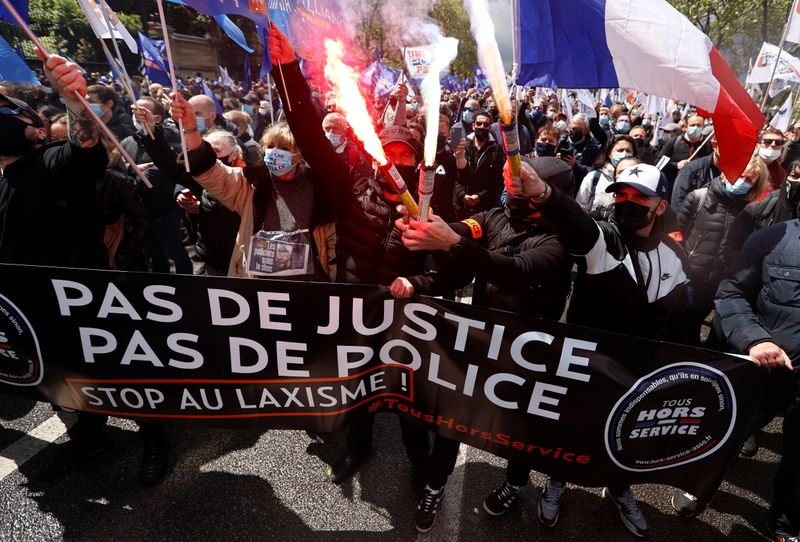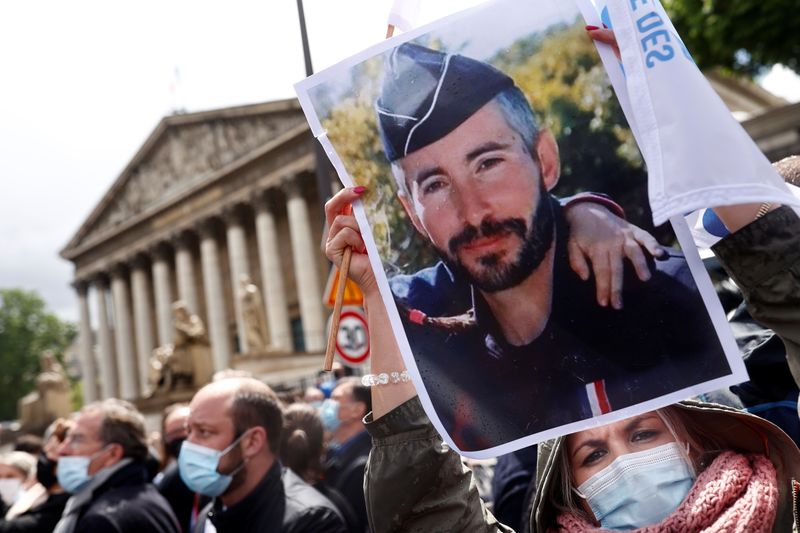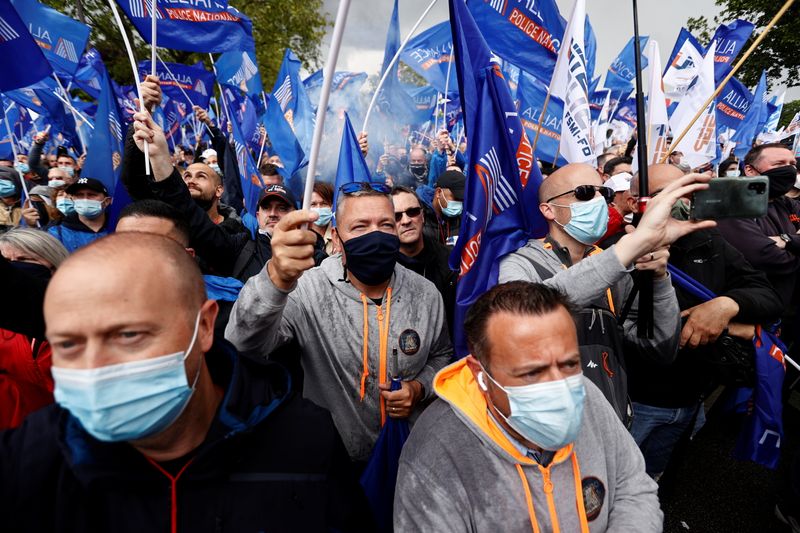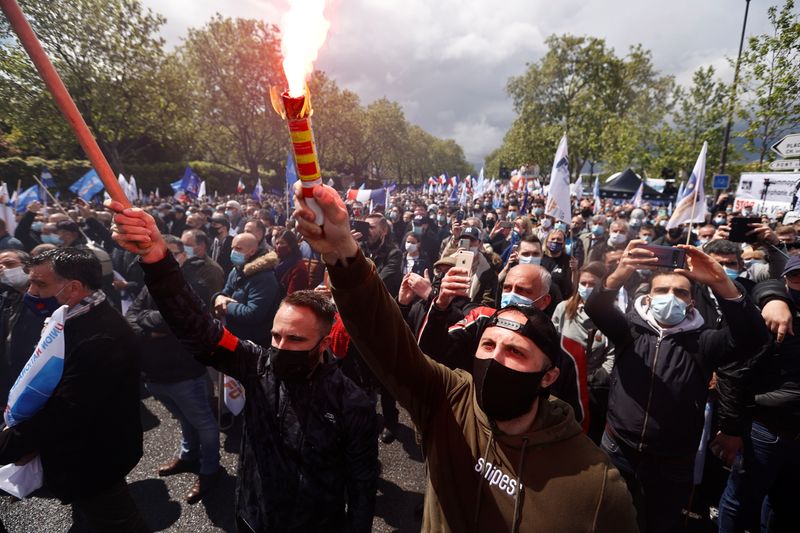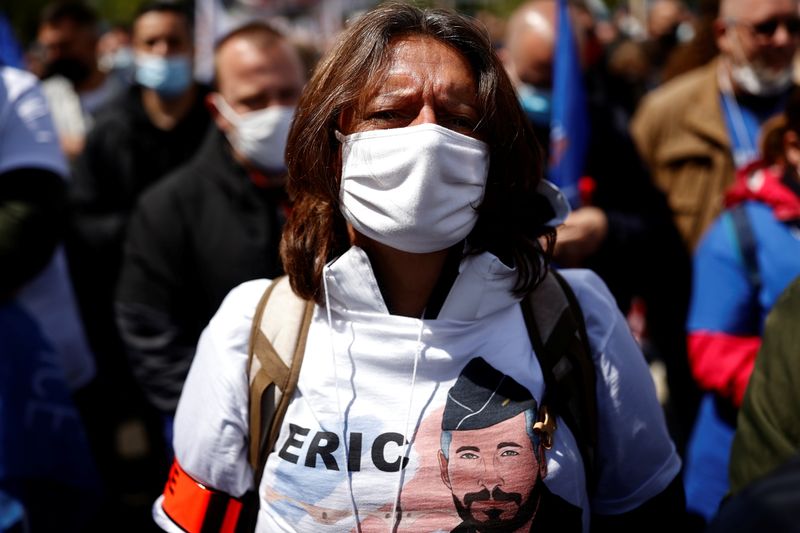
Sakeina Syed
·Contributor
Tue., May 18, 2021
Thousands of people gathered in cities across Canada this past weekend for peaceful protests in support of the Palestinian solidarity movement, including rallies in EDMONTON, Vancouver, Saint John, Ottawa and Toronto. As of today, at least 212 Palestinians, including 61 children, have been killed by the Israeli airstrikes on the Gaza Strip. In Israel, officials say 12 people, including two children have been killed since the fighting started over a week ago.
As the death toll escalates, activist groups and members of the public are expressing disappointment with the Canadian government’s lack of condemnation towards Israel.
This discontent is being echoed by some politicians, with federal NDP leader Jagmeet Singh calling for Trudeau to halt the sale of arms to Israel “until the end of the illegal occupation.”
According to the Government of Canada’s official policy guide, Canada “does not recognize permanent Israeli control over territories occupied in 1967,” including the Golan Heights, the West Bank, East Jerusalem and the Gaza Strip. The guide highlights that these settlements violate international law, namely the Fourth Geneva Convention.
But in spite of this official position, the government’s official statements have made little mention of the Israeli raids and airstrikes on these illegally occupied territories. Despite Palestinian deaths numbering in the hundreds and over 30,000 residents of Gaza displaced from their homes by the air raids, the statements only extend as far as condemning general violence in the region.
Michael Bueckert is the Vice President of Canadians for Justice and Peace in the Middle East (CJPME), a non-profit and secular organization that aims to promote justice and development in the Middle East. He said that CJPME is “very disappointed with Canada's response to the protests over the Sheikh Jarrah evictions, the violent raids against Al Aqsa and the airstrikes in Gaza.”
“In general, all statements have taken an empty ‘both sides’ approach which fails to recognize the distinction between occupied and occupier,” said Bueckert, who holds a PhD from Carleton University specializing in political economy. He adds that the Canadian government’s statements “do not directly name—let alone condemn—Israel’s colonial actions.”
In Minister of Foreign Affairs Marc Garneau’s statement on May 12, he unequivocally condemns rocket attacks “fired by Hamas.” But when it comes to that week’s Israeli police raids on Al-Aqsa that left 350 Palestinians injured and 250 hospitalized, Garneau does not mention a perpetrator, instead referring broadly to “unacceptable violence” at the holy site.
More tellingly, in Garneau’s statement and Global Affairs Canada’s next statement on May 16, no mention at all is made of the Israeli airstrikes. The May 16 statement was posted at 11:55 p.m., but made no mention of the approximately 188 Palestinian deaths from 55 Israeli air raids that had taken place by that point.
The statement mentions violence against journalists and “humanitarian workers and facilities under fire,” but never specifies who perpetrated these acts or who the victims were.
Those reading the federal government’s official statements are presented with a picture devoid of any mention of Palestinian deaths at all, let alone direct condemnation of Israel’s airstrikes—or even the word ‘airstrike’ itself.
When asked for clarification on this, a Global Affairs Canada spokesperson provided a statement reiterating the same messaging, only adding that “the use of force has led to significant civilian loss of life” and that they “urge utmost restraint.”
Bueckert said it is worth noting that Garneau did mention the evictions in Sheikh Jarrah and Silwan in Parliament last week when asked a question. Bueckert says this suggests “the government is aware of Israel's unjustifiable actions in Jerusalem, and is experiencing pressure to respond—whether from diplomats or from within the Liberal Party.”
What is Canada's relationship with Israel?
In its most recent report in 2019, Canada sent $13.7 million in military exports to Israel, including $1.2 million for bombs, missiles, and other explosive devices, and $3.1 million for military aircraft.
The country generally votes against or abstains from the 16 UN resolutions on Israeli-Palestinian matters, including issues like sovereignty, human rights, and Israeli settlements. This pattern was set around 2006, when the Harper government was in power.
However, in November 2019 Canada voted “yes” on one of these resolutions, in support of Palestinian right to self-determination. The resolution criticized the Israeli barrier wall, and mentioned the urgency of reaching an end to the Israeli occupation that began in 1967. This singular vote was seen by some as a divergence from Canada’s traditional pattern of abstaining from UN votes on the issue, or siding with Israel.
Canadians demand action and equality, not empty words
For those attending this weekend’s Palestine solidarity protests, frustration with the Canadian government’s stance is a common theme.
Nada, a Canadian graduate student, attended the weekend’s protests in the hopes of seeing Canada cease its arms deal with Israel. “My tax money is being used to murder innocent children,” she said. “How can we, as a ‘democratic’ country, a country that claims it supports global human rights, be directly investing money in weapons to murder innocent people?”
Yusra, a Canadian university student, said she attended her first-ever protest at Toronto’s Nathan Phillips Square on Saturday not only because of the “ongoing ethnic cleansing” occurring in Palestine, but also because of the Canadian government’s response to it.
“I can’t stand how they have said so many words that mean absolutely nothing, but still will not at all acknowledge Israel's crimes,” she said. “They say they want the violence to stop, and still will not place sanctions on the weaponry they give to Israel. They preach peace and a diverse country that is accepting, and yet the people of Toronto scream for them to do something, and they stay idle.”
Bueckert said that for those pushing for direct action from the government, the protests cannot be ignored.
“I don't think it will be possible for the government to miss the fact that Canadians are showing support for Palestinian human rights in massive numbers, in a way which feels unprecedented,” he said.







